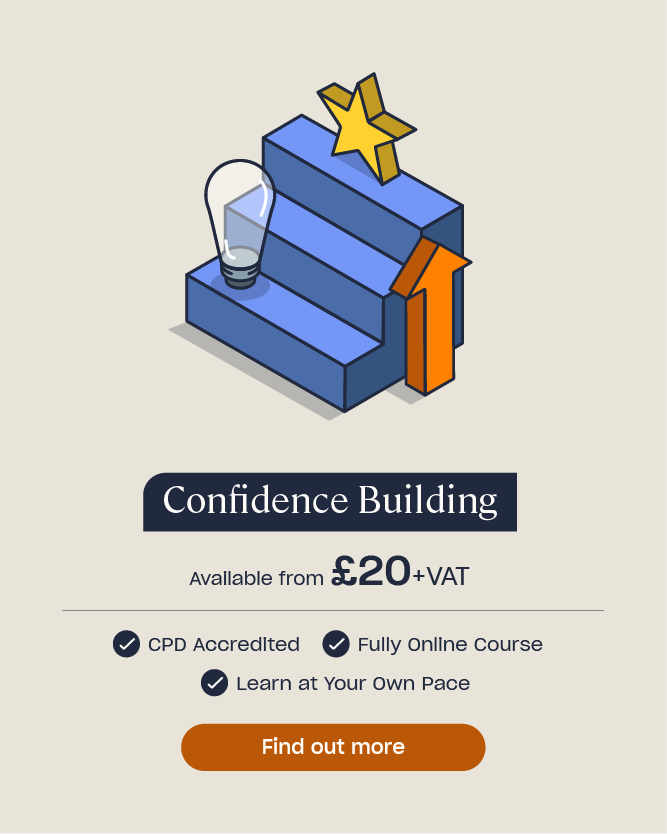How to Speak Up in Meetings
Regardless of your role, or the industry you work in, it is likely that you will be required to participate in meetings during your working life. However, whether you are involved on a regular or occasional basis, they can be a cause of anxiety and stress, with many people struggling to speak up effectively.
In this article we will outline the benefits of speaking up in meetings and explain why you might find it difficult to contribute and engage in discussions. We’ll also provide you with actionable advice to take forward, helping you to grow and develop your level of confidence so you feel more in control during meetings going forward.
What is the Importance of Speaking Up in Meetings?
Speaking up in meetings is about more than simply sharing your point of view – there are also many other personal and professional benefits. Good communication skills are an essential part of how we build and maintain relationships, develop our knowledge and learning, function well as a team and how we build confidence in ourselves and others.
Professional relationships can hugely benefit from how you communicate in meetings and it is important to remember that your contributions are valid and important, no matter how big or small. You do not have to have a perfect idea or a fully formed plan to speak up, either. Sharing your insights or asking questions can help to further develop a project, encourage discussions, lead to new ideas or inspire others’ thought processes and contributions.
Depending on the nature of your job, your position and the purpose of the meeting, the way in which you speak up and the benefits it can have, may vary. For example, if the aim of a meeting is to create a workable action plan to achieve certain goals, speaking up in a way that invites different perspectives, constructive feedback and others’ input, can help to ensure the final plan is one that is well considered and most likely to be a success.

Whilst not everyone excels at speaking out loud and taking the lead in every meeting, it is important to understand that developing your confidence and ability to speak up can be a key factor in your career progression, job satisfaction and overall input within the business. It is an excellent opportunity to allow others to hear your voice, showcase your knowledge, your value and your competence.
By allowing others to see your strengths and what you can bring to your role and the business, you are more likely to find yourself presented with new opportunities and chances to influence business activities in a positive way.
Personal development goals can come in many forms, but whatever your goals may be, seeking out ways to step out of your comfort zone at work can help you to achieve greater things in all areas of life. One such goal could be to learn minute taking or how to chair a meeting effectively. Chairing a meeting can be a great way to build confidence and gain a different perspective on how meetings are run and managed.
Why Do I Struggle to Speak Effectively in Meetings?
Many of us struggle to not only speak out in meetings, but also to speak up clearly and effectively. This is often referred to as ‘meeting anxiety’ and it doesn’t necessarily link to how confident you feel as a person or in other scenarios. You may suffer from a lack of confidence, be new to your role or suffer from social anxiety, making you feel uncomfortable speaking out in group situations. Meeting anxiety is most likely to strike before presentations or more serious meetings, such as interviews, salary negotiations or performance reviews.

Let’s take a look at some of the other reasons that could prevent you from speaking up, you might:
- Feel dominated by others in the group if they are more outgoing than you or if they come across as strongly opinionated.
- Believe your ideas are less valuable than others, either because others are more experienced than you or because you don’t feel you can articulate effectively.
- Struggle to fully engage with your colleagues if you are conducting meetings remotely. This can be particularly true for those who have never engaged with those they work with in person.
- Know when it is appropriate to share your views in virtual meetings, as it can be harder to pick up on any physical and social cues.
- Be in a meeting with those in a more senior role and feel intimidated by their position.
Always remember that challenges are a natural part of life and one key way to develop our level of resilience is to adopt a growth mindset. It allows us to embrace difficulties and use them as opportunities to progress in all areas of our lives.
Want to Learn More?
Taking the initiative to learn new skills and develop yourself personally and professionally can provide you with a great many benefits. Why not take a look at our Confidence Building Course to help you in a range of situations, and identify the barriers that are holding you back from achieving your goals. Or, check out our Resilience Training Course to gain practical advice and tools for building personal resilience and growth.
How to Be More Confident in Meetings
There are several ways to help foster more confidence in meetings. Although, the approach you take may depend on what barriers you personally face and any specific areas you may identify as needing further development. For example, a person who feels comfortable in meetings but lacks the experience and knowledge of meeting etiquette and how to effectively communicate their ideas, may have a different focus to those who have poor confidence and self-esteem and find it hard to manage their meeting anxiety.

However, the following suggestions for how to be more confident in meetings can benefit everyone, even if you are building on your existing level of competence or starting from scratch. These include:
- Reaching out – there is no harm in reaching out to clarify the purpose of the meeting and to ask what the meeting host hopes to gain. Knowing this can help you to understand what contributions would be most relevant and useful.
- Preparing ahead of time – preparing notes in advance can help you to stay focussed, particularly if you feel nervous or stressed. Notes can remind you of what you would like to discuss, questions you may wish to ask or what key information you are looking to take away from the meeting.
- Relaxing – using techniques like breathwork and affirmations to help calm your anxiety before a meeting can help you to maintain focus and a more positive mindset.
- Speaking first – if you are going to speak as part of a group presentation or you know each person may need to contribute to the meeting in turn, volunteer to take your turn as early as possible. This will help you to avoid the anxious wait that comes from waiting for your turn and will free you up to relax and concentrate on the rest of the meeting.
- Asking questions – you shouldn’t avoid asking questions because you worry it might not be good enough, there is no such thing as a bad question and they are a great opportunity to clarify points, show your interest and practice speaking up in a meeting.
- Practising active listening – this means choosing to listen with focused intent and does not simply mean staying quiet. It means you are taking in what the speaker is saying, remaining present and aware. When a person avoids speaking up in meetings it can lead to a person becoming less engaged in what is being said as they have no intention of discussing it during the meeting.
- Engaging similar to the purpose of active listening, remaining engaged can help to calm anxiety – speaking up is an obvious form of engagement, but taking notes can also be invaluable. The more engaged you are, the more understanding you will have of what is being discussed and the more confident you may feel about contributing to the discussion.

- Learning from others – look to those you see as confident and articulate communicators in meetings, paying attention to how they put their contributions across, how others respond to them and what you found effective about the way they spoke up.
- Managing the challenges of virtual meetings – remote working can present some difficulties when it comes to successful engagement in meetings, with online interactions having their own rules of etiquette. Utilise the features available to you, such as the raised hand feature to notify people when you have something to say and the chat box function if you wish to engage without speaking. It is also worth remembering not to hide behind the mute button. If those entering the meeting exchange greetings, try to join in where appropriate.
- Reviewing your performance – when looking to develop yourself, it is important to self-reflect and even gather feedback from colleagues if you are comfortable doing so. It can be useful to identify areas you would like to improve upon so you can continue to grow and gain greater confidence and competence going forward.
Speaking up in meetings can have multiple benefits to your personal and professional development. It can help you to build confidence, strengthen relationships, improve communication skills and open you up to a variety of new opportunities within your career. Take the time to adopt a growth mindset and embrace the challenge of public speaking.
Further Resources:
- Confidence Building Training Course
- How to Develop a Growth Mindset in the Workplace
- How to Chair a Meeting Effectively
- Minute Taking Quiz
- How to Upskill Yourself







